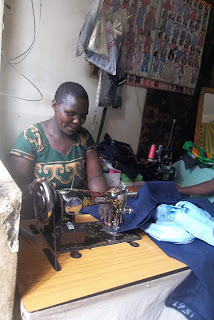When reading posts on the blog or letters from your sponsored children, you may have seen references to the KCPE or KCSE exams and wondered what those are all about. In Kenya, students are required to take cumulative examinations in order to receive certificates of completion for both primary and secondary school at the end of Standard 8 and high school, respectively. Obtaining these certifications is critical to the future success of our GPS and WHS students. Achieving a certain Kenyan Certificate of Primary Education (“KCPE”) exam score is required for Standard 8 students to gain admission to secondary school while scores on the Kenyan Certificate of Secondary Education (“KCSE”) exam determine university and trade school admissions, as well as job eligibility, for Form 4 students. For those Form 4 students unable to continue on to university, obtaining the KCSE can mean the difference between a decent job or admission to trade school and struggling to make ends meet in the slums.
KCPE Exam
The KCPE Exam tests students in the following subjects - Maths, English, Kiswahili, Social Studies, Science, and Religious Studies. The test is typically taken in November and results are made available in January. Due to the timing of the exam, the beginning of high school Form 1 classes is generally delayed until late January.
The maximum score on the exam is 500 points. For reference, in 2015 the Kenyan government reported that 49.61% of Kenyan students nationally achieved the mean score of 250 marks. The highest score achieved by any student in Kenya on the 2015 exam was 446 marks.
Waddington High School generally requires a minimum KCPE score of 240 marks for admission.
KCSE Exam
The KCSE Exam is administered to Form 4 students and tests a minimum of seven subjects. Students are required to test in three compulsory subjects (Maths, Kiswahili, and English), at least two sciences (choosing among Chemistry, Biology, and Physics), one humanities (choosing among History and Government, Geography, Christian Religious Education, Islamic Religious Education, and Hindu Religious Education), and at least one Practical (Home Science, Art and Design, Agriculture, Computer Studies, or Aviation) or Technical (French, German, Arabic, Music, or Business Studies) subject. The choices available to students are generally limited by the curriculum available at their high school. For example, due to lack of funds the only Practical or Technical subject taught at WHS is Business Studies.
Testing for the KCSE Exam typically begins in late October and ends in late November. KCSE Exam results are not released until the end of February. High school graduates planning to continue their education apply to University and other programs after receiving their KCSE scores, and begin their post-secondary programs the following January.
Kenya has a network of public and private universities that offer a broad range of career programs. In general, students who achieve a score of C+ or above on the KCSE Exam are eligible to attend public or private universities. Students who achieve a score of C or above may enroll in vocational programs or technical schools to obtain training for careers such as nursing, teaching, and accountancy.
Students scoring a B or higher on the KCSE Exam are eligible to receive government loan assistance at public universities. For students at WHS, scoring high enough on the KCSE to qualify for the government loan program is typically the only way that they can afford to attend university.





































